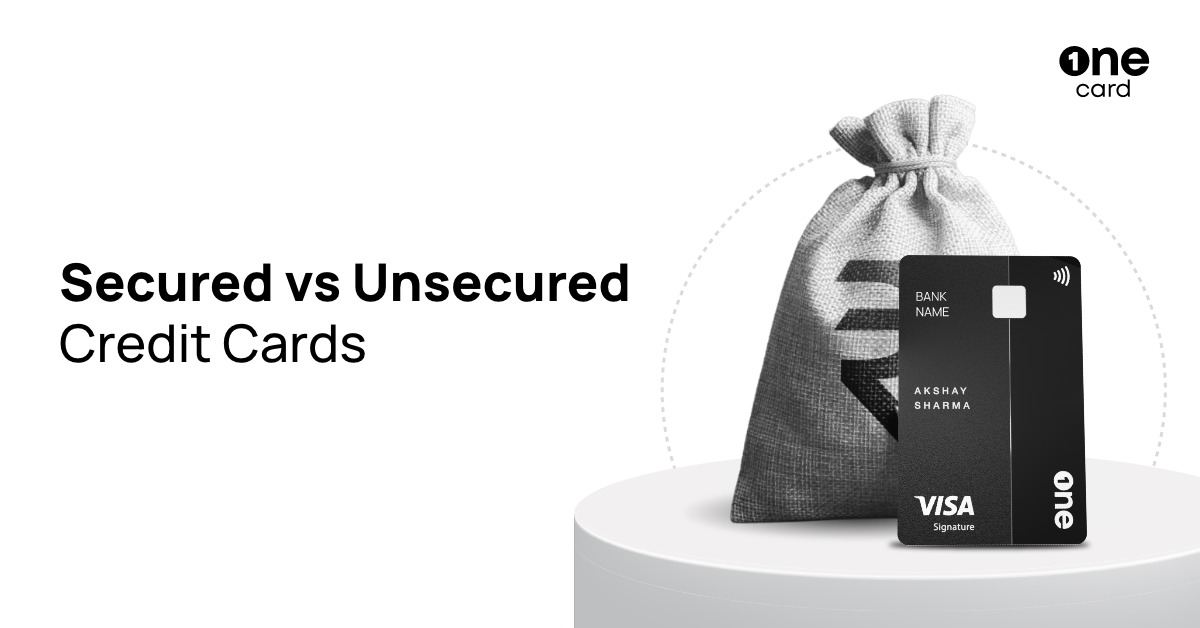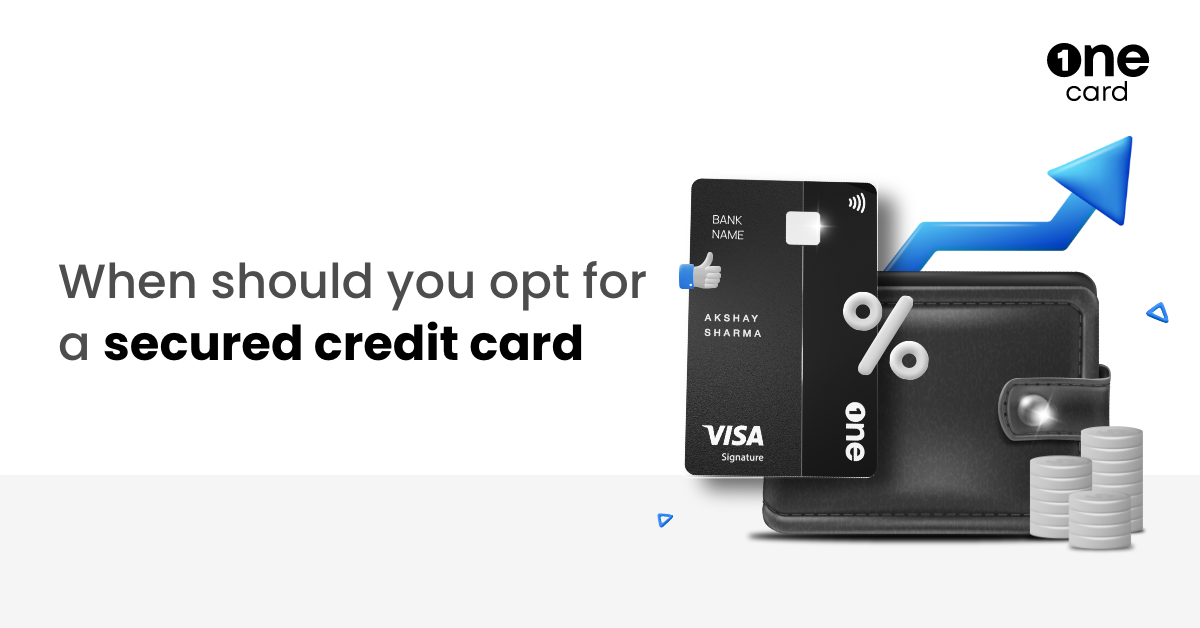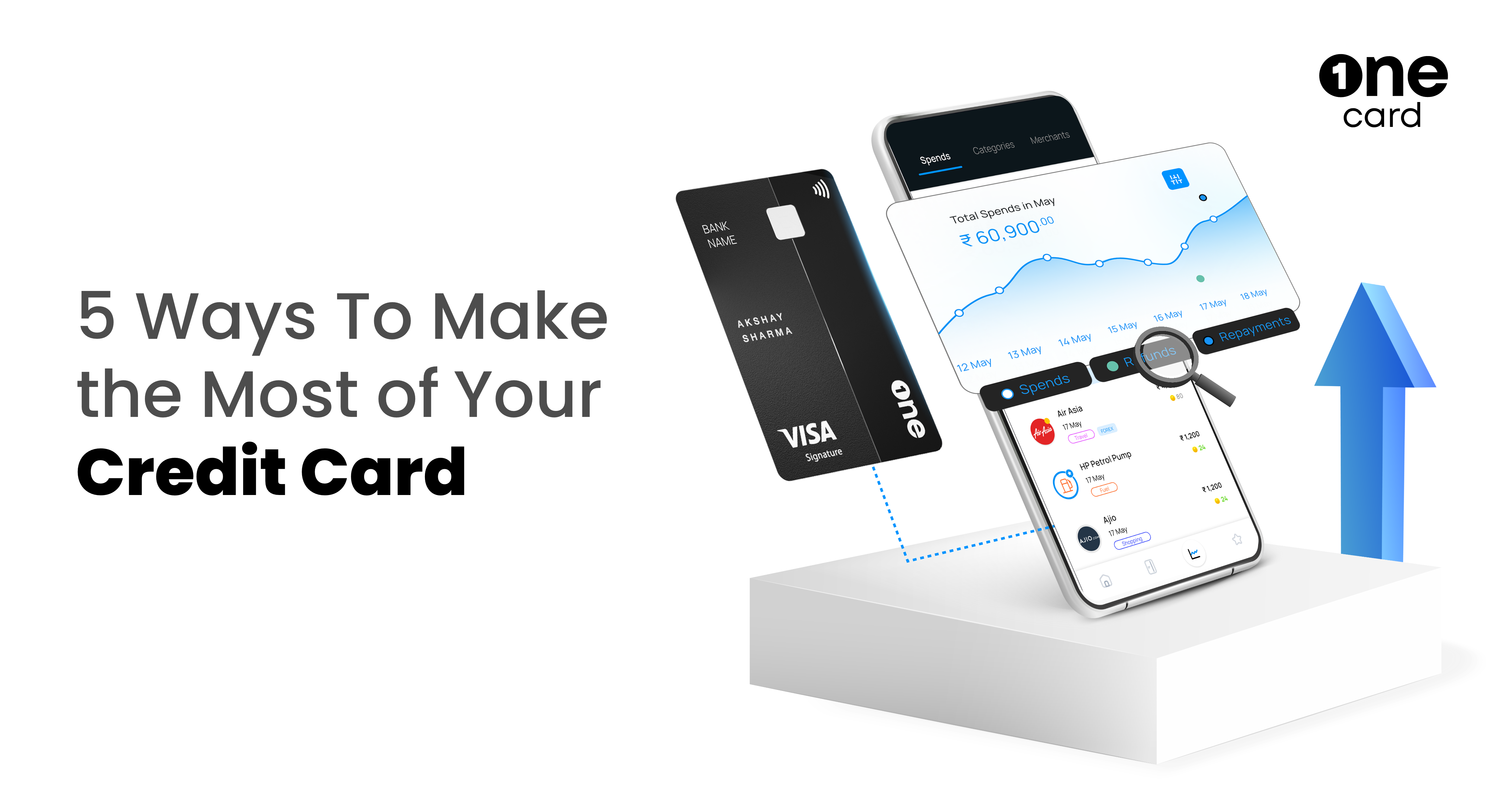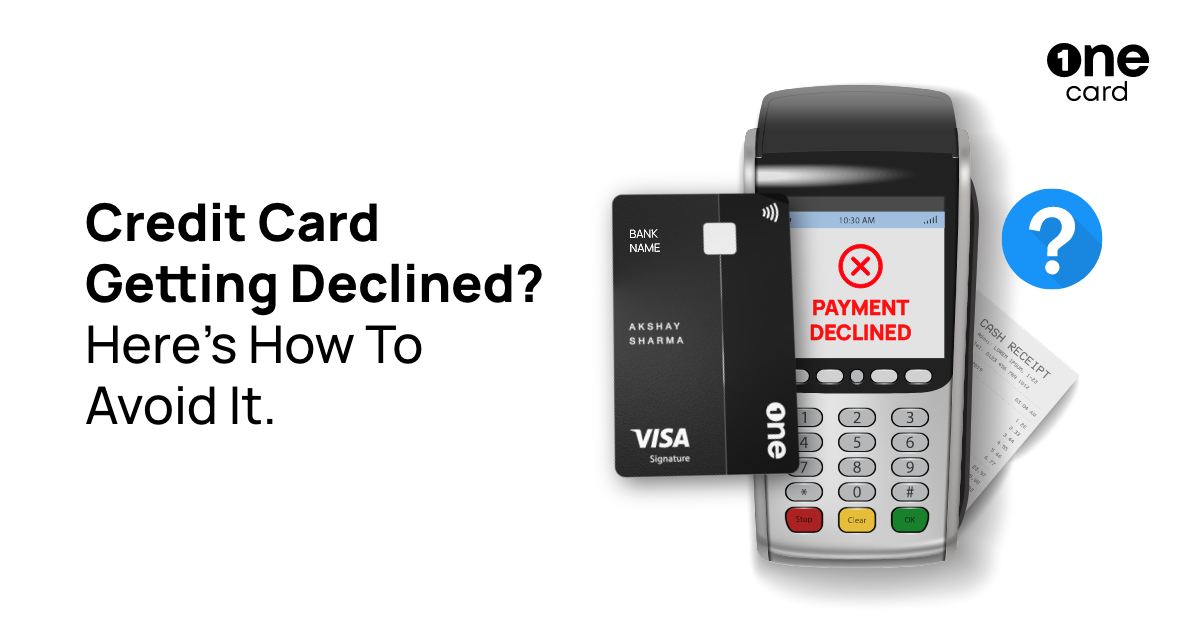Secured Credit Cards vs Unsecured Credit Cards: Key Differences
By OneCard | May 17, 2023

Table of contents:
- Understanding the Difference Between Secured and Unsecured Credit Cards
- What is a Secured Credit Card?
- What is an Unsecured Credit Card
- Difference Between Secured and Unsecured Credit Cards
- Advantages of Secured Credit Cards
- How to Apply for a Secured Credit Card Online?
- Which is Better, a Secured Credit Card or an Unsecured Credit Card?
- Conclusion
Understanding the Difference Between Secured and Unsecured Credit Cards
In today’s world, credit cards have become an essential financial tool, offering convenience and flexibility in managing expenses. However, choosing the right credit card can be confusing at times, especially with the different types available. A secured credit card might be a good option if you have no or low credit score. While unsecured cards don’t require a deposit, the amount you can borrow is based on your credit score along with other factors. These cards can be easily obtained with a credit score of 750 or above. Here, we will weigh the pros and cons of both to help you make an informed decision.
What is a Secured Credit Card?
Secured credit cards in India are offered against securities like fixed or recurring deposits. These cards are ideal for people who don’t have a high credit score or any credit history whatsoever. For instance, for OneCard, you can open a Fixed Deposit (FD) that acts as collateral. The amount of your FD becomes your credit limit. You also earn an interest rate against the FD you have opened. Generally, you get 70-80 percent of the credit limit from your FD amount. However, many secured credit cards in India provide a 100% credit limit on your FD, giving you the freedom to determine your credit limit. Making timely repayments helps improve or build your credit history, eventually making you eligible for other forms of credit. It’s a great way for people with low credit scores to get their foot in the door and start building up their credit scores. Also, it’s an excellent tool for inculcating responsible credit habits.
What is an Unsecured Credit Card
An unsecured credit card doesn’t require collateral or a security deposit. The issuers consider the credit score of the borrower and several other factors such as income to decide the credit limit and approve their application. These cards are easier to obtain for those with good credit scores. Unlike a secured credit card, theres no collateral for the lender to fall back on if the borrower defaults on payments.
Difference Between Secured and Unsecured Credit Cards
Some of the key differences between Secured and Unsecured Credit Cards are described below.
-
Secured credit cards require collateral in the form of securities like FDs. On the other hand, there is no such requirement in the case of unsecured credit cards.
-
The best secured credit cards in India can be obtained with ease by those who have no or low credit scores. However, to get an unsecured credit card, you need to have a healthy credit score, along with meeting eligibility criteria that consist of age, income, and employee details.
-
In the case of secured credit cards, your credit limit is determined based on the amount of your FD. With a higher FD amount, you can increase your credit limit. On the other hand, for unsecured credit cards, you may have the added advantage of securing a higher credit limit with a higher credit score. However, there are several other factors involved. Both types of credit cards can be useful tools for managing and building credit, but the choice between secured and unsecured cards will depend on individual financial circumstances and goals.

Advantages of Secured Credit Cards
Secured credit cards have many advantages. Let’s explore a few.
-
They are easier to obtain for people with no or low credit scores.
-
Secured credit cards help you build your credit score by using credit and making timely repayments. This helps to establish creditworthiness and eventually qualify for an unsecured credit card or other types of credit.
-
If you use secured credit cards responsibly, you can even get your credit limit increased over time (which may vary from lender to lender).
How to Apply for a Secured Credit Card Online?
Choosing the right issuer for a secured credit card is extremely important. The steps to get one are easy as well.
-
Look up different lenders and choose the one that suits your requirements the most.
-
Download the issuer’s app. Fill in the basic details along with your PAN details.
-
Once that is done, the issuer will ask you to open an FD.
-
Enter your PAN and Aadhar details to open your FD.
-
Once that is done, your virtual card will be activated for use. You will receive your physical credit card in 5-7 business days.
Additional Read:- Apply for a Credit Card Against FD with a Low Credit Score
Which is Better, a Secured Credit Card or an Unsecured Credit Card?
The choice between secured and unsecured credit cards depends on your financial choices and most importantly: your credit history.
If you have a low or no credit score, it is better to go for secured credit cards. Their eligibility criteria are minimal, and by making timely repayments, you also become eligible for other forms of credit in the future. On the other hand, if you have good credit, an unsecured credit card might be a better fit, as you don’t need to make any deposits and can get a higher credit limit.
Conclusion
OneCard is India’s first premium metal credit card that offers both secured and unsecured credit cards. The entire process, from opening your FD to the approval of the credit card, takes less than 5 minutes.
The OneCard app helps you control your card, offering enhanced security. You also earn rewards on each transaction and 5x rewards on your top two spending categories. Not only this, but OneCard has no joining, annual, or hidden fees at all. Apply credit card today and get access to the best offers!

**Disclaimer: The information provided in this webpage does not, and is not intended to, constitute any kind of advice; instead, all the information available here is for general informational purposes only. FPL Technologies Private Limited and the author shall not be responsible for any direct/indirect/damages/loss incurred by the reader for making any decision based on the contents and information. Please consult your advisor before making any decision.



Sharing is caring 😉